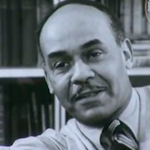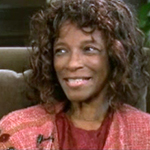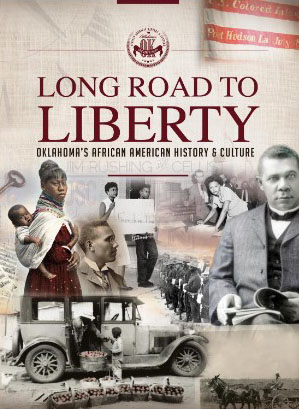
Black History is Oklahoma History
This page is a work in progress, created to share resources about the Black experience in Oklahoma.
As an educational organization and a dedicated community partner, the Oklahoma Historical Society (OHS) has long believed that one important step toward ending racism and injustice is a better understanding of our shared history. By providing resources that give context for the Black experience in Oklahoma, we hope to spark civil discourse and open dialogue about the role of race in the history of our state. While these conversations about our past may not be comfortable, they are necessary to understand where we have been and how we can best move forward together.
Since 1893, the Oklahoma Historical Society has collected and shared the story of Oklahoma. In the 1980s, the OHS began a concerted effort to engage with Oklahoma’s Black community—to listen to their stories and share their experiences. While we have made both mistakes and significant strides, we will continue to do better and do more. As new voices call for change, the OHS stands committed to our mission to collect, preserve, and share the history and culture of all Oklahomans. Learn more and browse free resources related to the Black experience in Oklahoma below.
The Civil War in Indian Territory
The Battle of Honey Springs (2021) tells the story of the historic 1863 battle that was a turning point for the Civil War in Indian Territory. The approximately 9,000 troops involved included Native Americans, veteran Texas regiments, and the First Kansas Colored Volunteers, which was the first African American regiment in the Union army.
Walk the historic battlefield and view artifacts that tell the story of this momentous event at Honey Springs Battlefield, located east of US Highway 69 between Oktaha and Rentiesville. Learn more about Honey Springs Battlefield.
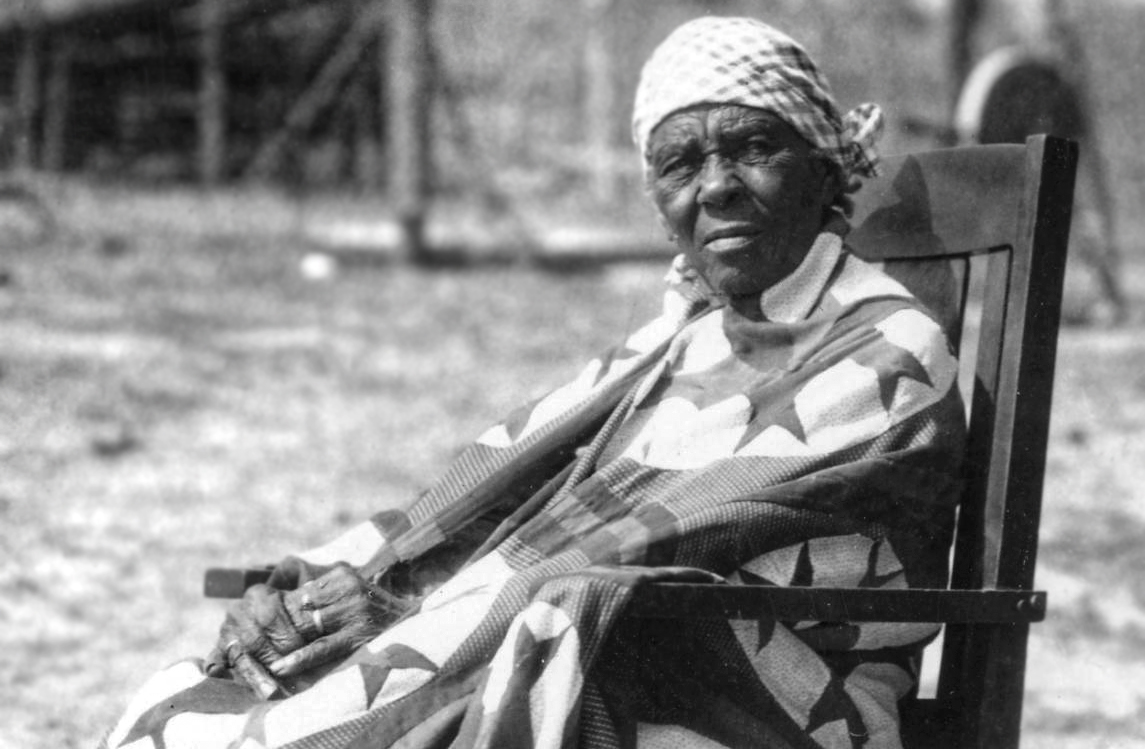
Freedmen and the Territorial Era
The Encyclopedia of Oklahoma History and Culture- African Americans
- African American Newspapers
- Battles of Cabin Creek
- Battle of Honey Springs
- Buffalo Soldiers
- Civil War Era
- Civil War Refugees
- Freedmen
- Freedmen Schools
- Juneteenth
- Reconstruction Treaties
- Slave Revolt of 1842
- Slavery
Researching Freedmen History
View images, learn about Dawes Rolls, and find sources for Freedmen records on our Freedmen History page.
“From Tulsa to Beyond: African American Genealogy in the Indian Territory and Oklahoma,” Nicka Smith
Discover how to research the lives of your ancestors using tribal records (Cherokee, Chickasaw, Choctaw, Muscogee, and Seminole), federal records, newspapers, college/university collections, historical society records, and more!
From The Chronicles of Oklahoma
“‘The Golden Days’: Taylor and Mary Ealy, Citizenship, and the Freedmen of Chickasaw Indian Territory, 1874–77,” by Ellen Cain
“West Edwards Days: African Americans in Territorial Edmond,” by Christopher P. Lehman
Podcast
“Slavery in Indian Territory,” BrainBox podcast, Oklahoma Humanities
“The Misremembered ‘Uncle’ Wallace and ‘Aunt’ Minerva,” Shelby Ward (2021)
“Uncle” Wallace and “Aunt” Minerva Willis contributed to the musical legacy of Oklahoma and beyond. They performed Negro spirituals during the antebellum Indian Territory period. While their talent has not been forgotten, the nature of their relationship has been misremembered. Hear their story in this presentation.
“Finding Isaac Rogers,” Nicka Sewell-Smith (2021)
Isaac Rogers was a well-known US Civil War veteran and deputy marshal who met his demise on a platform in Fort Gibson, Indian Territory, on April 21, 1897—but who was he outside of those titles and that singular event? Find out in this presentation.
“The Elder Dunjee: Examination of the Life and Influence of John William Dunjee in Early Oklahoma”, Edith Ritt-Coulter (2022)
This session seeks to extend the story of Roscoe Dunjee by acknowledging the legacy of his father, John William Dunjee. The elder Dunjee contributed to the establishment of African American churches throughout Oklahoma and Indian Territories. He instilled in his children a sense of political consciences rooted in the ideology of racial uplift that impacted Oklahoma’s Black communities and communities throughout the United States.
Audio and Video
The Clara Luper Show
Listen to select episodes on YouTube
Podcasts
- “The 1921 Tulsa Race Massacre,” A Very OK Podcast
- “A Little Freedom is a Dangerous Thing,” A Very OK Podcast
- “Black Wall (Main) Street,” A Very OK Podcast
- “Oklahoma’s All-Black Towns,” A Very OK Podcast
- “Retail Therapy,” A Very OK Podcast
- “Bill Pickett,” Pawnee Bill Ranch and Museum Podcast
- “Slavery in Indian Territory,” BrainBox, Oklahoma Humanities
“Blacks on the Oklahoma Frontier: Lawmen, Outlaws, Cowboys, Cowgirls, and Rodeos,” Oklahoma African American Film Festival (2020)
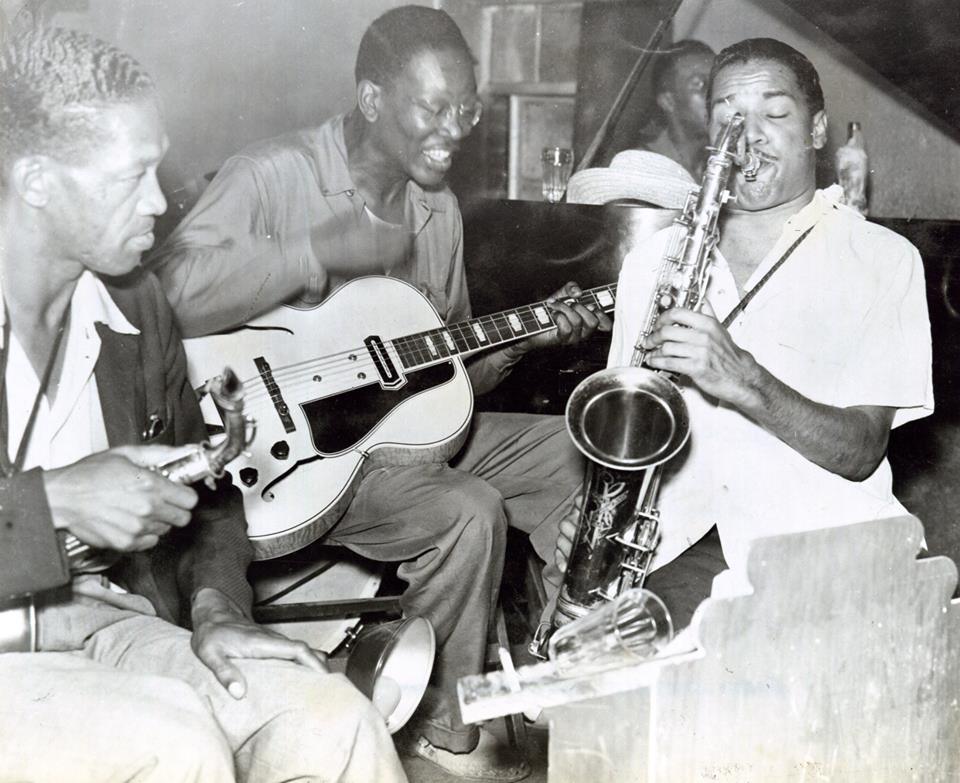
Discover How Black Oklahomans Shaped Literature, Music, and Culture
The Encyclopedia of Oklahoma History and Culture- Arts and Crafts
- Blue Devils
- Blues
- Zelia Breaux
- Charlie Christian
- Dudley Dickerson Jr.
- Big Al Downing
- Robert DoQui
- Frenchy Edwards
- Ralph Waldo Ellison
- Ernie Fields
- John Hope Franklin
- Lowell Fulson
- Gap Band
- Juneteenth on Greenwood
- Howard McGhee
- D. C. Minner
- Leona Mitchell
- Jimmy Nolen
- Oscar Pettiford
- Jimmy Rushing
- Wayman Tisdale
- Melvin Tolson
- “Uncle” Wallace and “Aunt” Minerva Willis
“Genie Boy Goes to Hollywood,“ Cindy Donovan Wallis and Gwen Walker
Gene “Genie Boy” Smith was raised in Stringtown, Oklahoma. He later moved to California and worked as one of the first Black stuntmen in Hollywood. Breaking color barriers, Smith did stunt work in “The Virginian” and “The Outcasts,” which was noted for being the first TV western with an African American co-star. Before his death in 2018, Genie Boy shared his perspective, unforgettable memories, and photos with the Atoka Museum.
Sports History
The Encyclopedia of Oklahoma History and Culture
Interview with Bobby Walton (2016)
Bobby Walton discusses breaking barriers in his attempt to be certified the first African American to register and participate as a player in the Oklahoma American Legion Baseball Tournament in 1954–55 in Enid, Oklahoma.
Black Writers
Learn about some of Oklahoma’s celebrated Black authors in the online exhibit Oklahoma Writers: A Literary Tableau.
The Tulsa Race Massacre
Collections and More
View OHS photographs, oral histories, newspapers, programs, and more on the Tulsa Race Massacre page
E-Exhibit
Tulsa Race Massacre
Lesson Plans
Black Wall Street
The Tulsa Race Massacre
Riot Versus Massacre
Teacher Resource Guides correlating to Oklahoma History Academic Standards
OKH.5.2, Examine multiple points of view regarding the evolution of race relations in Oklahoma
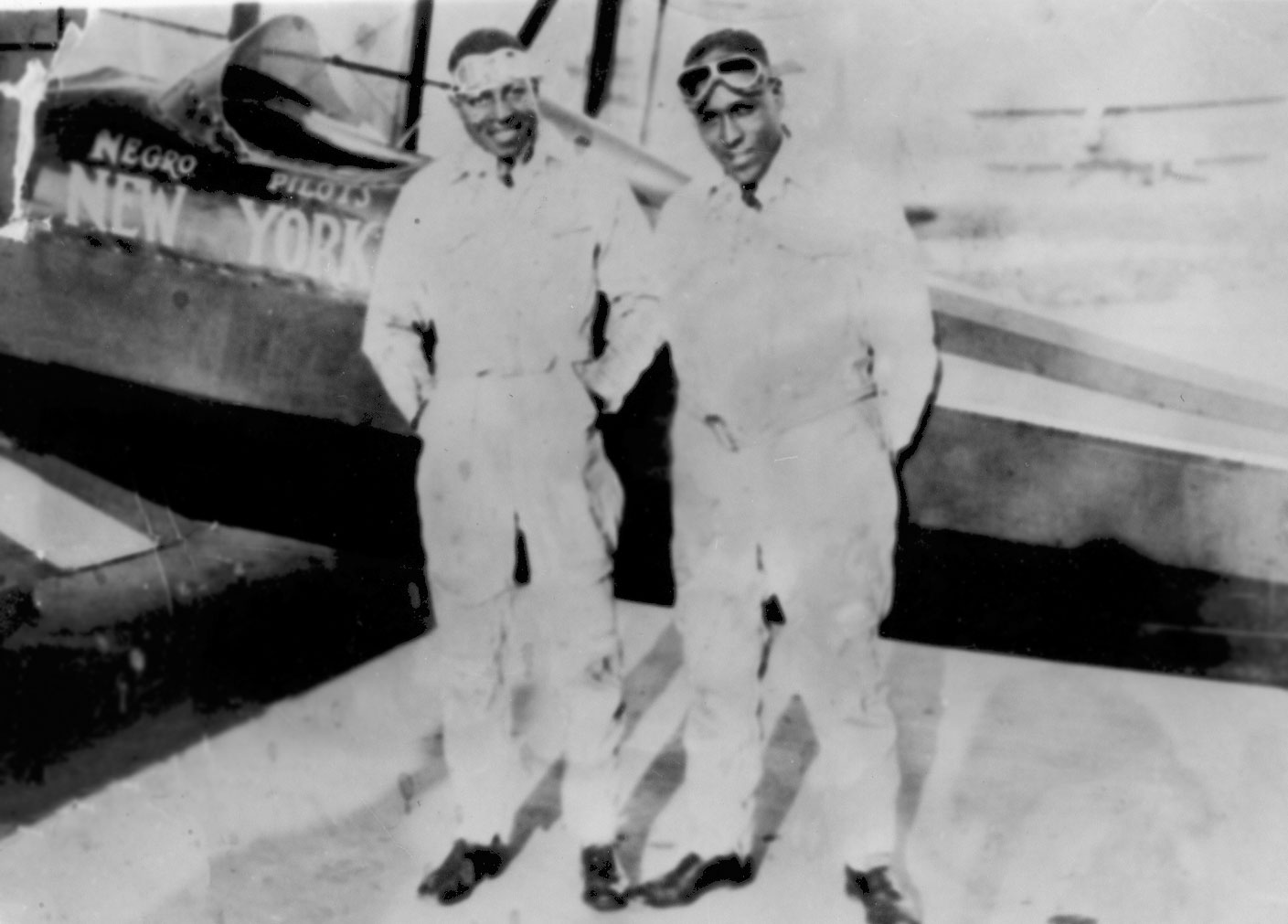
Early Oklahoma
The Encyclopedia of Oklahoma History and Culture- James Herman Banning
- Rufus Cannon
- Chief Alfred Sam
- Green I. Currin
- Drusilla Dunjee Houston
- Roscoe Dunjee
- Henry Ossian Flipper
- Dick Glass
- Crawford Goldsby
- A. C. Hamlin
- Judith Ann Carter Horton
- Coody Johnson
- Edward P. McCabe
- Zeke Miller
- Frederick Moon
- Bass Reeves
- W. H. Slaughter
- A. J. Smitherman
- William Twine
- Daniel Walker
- David J. Wallace
- “Uncle” Wallace and
“Aunt” Minerva Willis - I. W. Young
From The Chronicles of Oklahoma
“Colorblind Proletarian Brotherhood: African Americans, American Indians, and Racial Inclusivity in the Oklahoma Socialist Party,” by Matthew F. Simmons
“Did Oklahoma African Americans Vote Between 1910 and 1943?,” by R. Darcy
Tourism and Recreation
Explore events, landmarks, attractions, and more from the Oklahoma Tourism and Recreation Department.
www.travelok.com/long-road-to-liberty
View the Oklahoma Tourism and Recreation Department’s Long Road to Liberty: Oklahoma’s African American History and Culture on Issuu.
Researching the Black Experience in Oklahoma
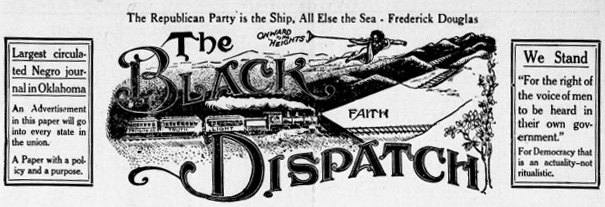
View thousands of issues in the African American Newspapers Collection, including these publications:
- The Black Dispatch
- The Langston City Herald
- The Muskogee Cimeter
- The Muskogee Lantern
- The Oklahoma Eagle
- The Oklahoma Guide
- The Oklahoma Safeguard
- The Peoples Elevator
- The Taborian Monitor
- The Tulsa Star
- The Weekly Progress
- The Western World
- The Wewoka and Lima Courier
Find more newspapers on The Gateway to Oklahoma History or visit the OHS Research Center in Oklahoma City to view newspapers on microfilm.
Collections Available on The Gateway to Oklahoma History
Currie Ballard Collection
Finley-Slaughter Family Collection
Melvin R. Chatman Collection
Rubye M. Hall Collection
Sapulpa Historical Society Collection
Shirly Nero Collection
Zella Patterson Collection
Learn More
African American History Resource Guide (PDF)
The Encyclopedia of Oklahoma History and Culture
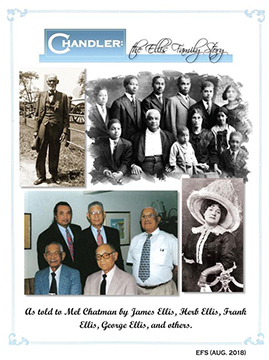
Read The Ellis Family Story, by Mel Chatman on The Gateway to Oklahoma History
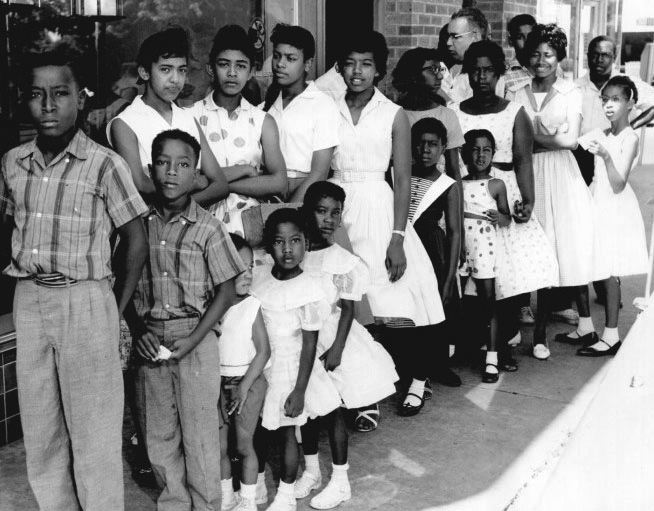
Resources for Educators, Parents, and Students
E-Exhibits
- The African American Civil Rights Movement in Oklahoma
- African Americans in Oklahoma Before 1954
- The Tulsa Race Massacre
- “African Americans” in A Fluid Frontier: Minority and Ethnic Groups and Opportunity in Oklahoma
Lesson Plans
The Curious Case of All-Black Towns
Senate Bill One
Black Wall Street
The Tulsa Race Massacre
Riot Versus Massacre
Teacher Resource Guides correlating to Oklahoma History Academic Standards
OKH.5.2, Examine multiple points of view regarding the evolution of race relations in Oklahoma
Traveling Trunk and Pop-up Panels
African Americans in Oklahoma
All-Black Towns and More
![]()
All-Black Towns of Oklahoma: Remembering Safe Havens
Join the State Historic Preservation Office on a journey through Oklahoma's All-Black Towns, where we will highlight the creativity, entrepreneurial spirits, and tenacity that helped build some of these Black safe havens.
Thematic and Architectural Survey
- Architectural and Historical Survey of Oklahoma All-Black Towns, Pt 1, 2023
- Historic Context for African American History in Muskogee, Oklahoma, 2014
- Intensive-Level Survey of Northeast Okmulgee, East of Highway 75, 2023
- Rosenwald Fund in Oklahoma, 1997
- From Creek Freedmen to Oklahoma Oil Men: The Black Heritage and Architectural Legacy of Okmulgee (1878–1929), 1991
- African American Colleges
- All-Black Towns
- Boley
- Brooksville
- Clearview
- Freedmen Schools
- Greenwood District
- Langston
- Langston University
- Lima
- Lincoln City
- Red Bird
- Rentiesville
- Rosenwald Schools
- Second Street
- Summit
- Taft
- Tatums
- Tullahassee
- Vernon
“Oklahoma Bound,” the films of Reverend S. S. Jones
Watch selections from silent films created by Reverend S. S. Jones, who came to Oklahoma Territory in 1889. Scenes of traditionally All-Black towns of Oklahoma include Taft, Clearview, Melvin, and Boley in the 1920s.
Civil Rights in Oklahoma
Presented by the Oklahoma Historical Society, this documentary shares the history of sit-ins in Oklahoma City during the Civil Rights Movement. Through historic images and new interviews with sit-in participants, producers Joyce Jackson and Bruce Fisher tell the powerful story of this movement.
People of Oklahoma: Civil Rights Movement Across Oklahoma
The civil rights revolution of the 1950s and the 1960s included brave individuals who challenged a system of injustice and inequality. This documentary includes reflections of some who participated in sit-ins across Oklahoma, in addition to the comments by community leaders, such as Marilyn Luper Hildreth, Joyce Henderson, Dr. Gloria Griffin, Christina Beatty, Senator George E. Young, Loria Phillips, Espaniola Bowen, J. C. Watts, Jabee Williams, J. D. Baker, and others who are in charge of projects that preserve the legacy of the movement.
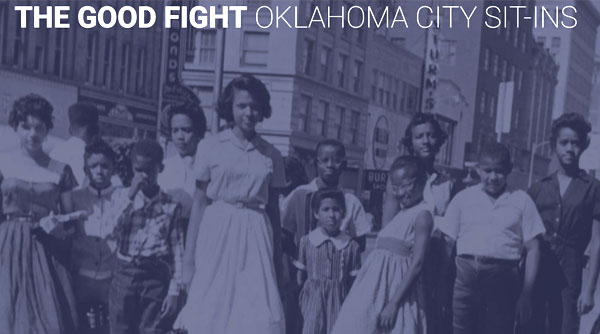
“The Good Fight,” Crossroads online publication
This issue presents an intimate look back at the struggle for civil rights in Oklahoma City.
Find more about Civil Rights Leaders and History
in The Encyclopedia of Oklahoma History and Culture
- Green I. Currin
- Drusilla Dunjee Houston
- Roscoe Dunjee
- Amos T. Hall
- Ira DeVoyd Hall Sr.
- Coody Johnson
- Clara Luper
- Frederick Moon
- George Perkins
- Melvin Porter
- Jake Simmons Jr.
- Ada Lois Sipuel Fisher
- A. J. Smitherman
- James Stewart
- William Twine
- I. W. Young
The Chronicles of Oklahoma
“An Unflinching Call for Freedom: Clara Luper’s Pedagogy at the Center of Sit-Ins,” by Rachel E. Watson
“Unforgotten Trailblazer: Nancy O. Randolph Davis,” by Gloria J. Pollard
Historic Places
“An Oklahoma Story of Place: Voices of Preservation” – Summit, Oklahoma
This video features interviews with descendants of Reverend L. W. Thomas, founder of the town of Summit, Oklahoma (Muskogee County). Summit was one of more than fifty All-Black towns established in present-day Oklahoma, and one of only thirteen still in existence today. The many businesses in Summit before World War II included a cotton gin, filling station, grocery, and garage.
“An Oklahoma Story of Place: Voices of Preservation” – Threatt Filling Station
This video features Reverend Allen Threatt III discussing the Threatt Filling Station, which was built in 1915. Owned and operated by his family, this service station was located along Route 66 near Luther, Oklahoma, and it served African American travelers and locals. This business is one that would typically be included in “The Travelers’ Green Book.”
Historical Markers
View historical markers related to ethnic diversity.
National Register of Historic Places
- 100 Block North Greenwood Avenue, Tulsa
- Abe Lincoln Trading Company, Clearview
- Attucks Community Center, Ponca City
- Attucks School, Vinita
- Booker T. Washington School, Enid
- Brockway Community Center, Oklahoma City
- Charles and Bertha Blevins House, Tulsa
- Daniel Webster High School, Tulsa
- Douglass High School (Old), Oklahoma City
- Douglass School, Lawton
- Dunbar Elementary School, Oklahoma City
- Dunbar School, Dunbar
- Edwards Heights Historic District, Oklahoma City
- Excelsior Library, Guthrie
- First Baptist Church (Colored), Anadarko
- Grayson Jail, Grayson
- Greenwood Historic District, Tulsa
- Jamison Cemetery, Okay vicinity
- Jewel Theater, Oklahoma City
- Kimbrough Temple C. M. E. Church, Ponca City
- Langston University Cottage Row Historic District, Langston
- Sidney and Mary Lyons Residence and Commercial Historic District, Oklahoma City
- Mount Zion Baptist Church, Tulsa
- New Hope Baptist Church, Chickasha
- Edward Richardson Building, Arcadia
- Dr. W. H. Slaughter House, Oklahoma City
- St. John Baptist Church and Rectory, Ponca City
- St. Paul Baptist Church & Cemetery, Meeker vicinity
- St. Philip’s Episcopal Church, Muskogee
- St. Thomas Primitive Baptist Church, Summit
- Reverend L. W. Thomas Homestead, Summit vicinity
- Trinity United Presbyterian Church, Oklahoma City
- Union School District 19 1/2, Newalla vicinity
- Vernon A.M.E. Church, Tulsa
Exhibits
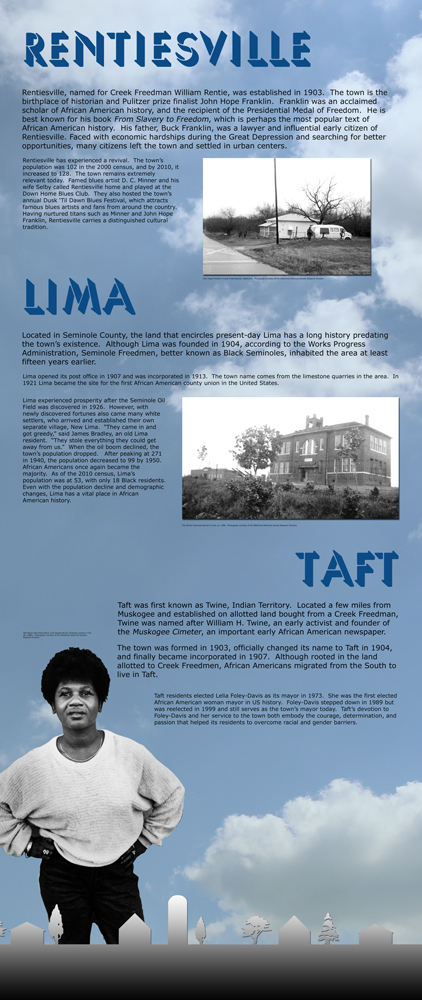
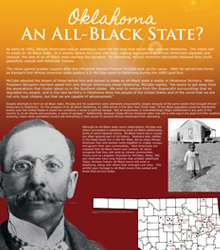
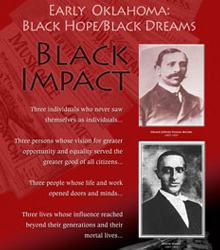
Traveling Exhibits
Bring a traveling exhibit to your school, library, church, or local community center.
- All-Black Towns of Oklahoma
- Thirteen All-Black Towns of Oklahoma
- Early Oklahoma: Black Hope/Black Dreams
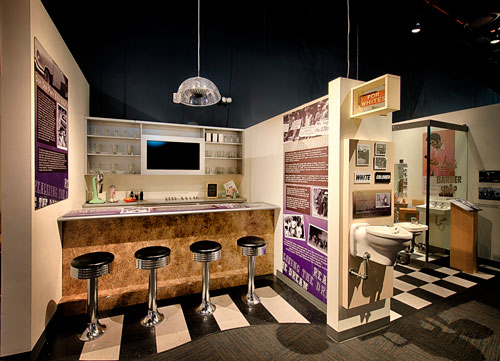
Visit Realizing the Dream, an exhibit about the Black experience in Oklahoma, at the Oklahoma History Center.

